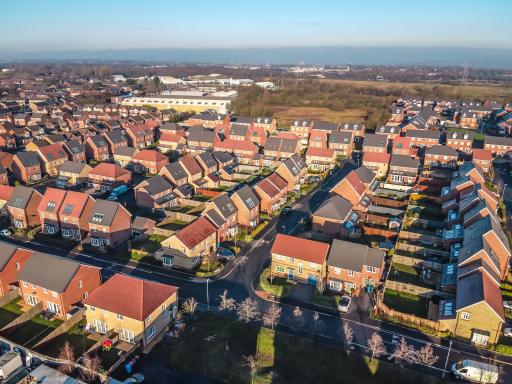Supporting Housing Needs in Detroit and Beyond
The McGregor Fund has released its biennial report, highlighting the learnings of the past two years in their work to end homelessness and chronic unemployment in Detroit.
The McGregor Fund has released its biennial report, highlighting the learnings of the past two years in their work to end homelessness and chronic unemployment in Detroit.

Three years ago, the McGregor Fund, a CMF member, added a priority of ending homelessness and chronic unemployment in Detroit to its grantmaking and the following year made an organizational commitment to anti-racism.
The Fund recently released its biennial report, outlining the learnings of the past two years, 2020-2021.
Highlights from the biennial report include:
In the report, Vanessa Samuelson, director of learning and reports at the McGregor Fund, outlined what was learned from their partners and peers over the last two years.
Some learnings include:
According to Samuelson, the Fund brought what they learned into 2022 and began to ask their grant partners and funding peers about how racial equity, justice and people with lived experience are part of how they work.
“What they have shared is helping us advance our own learning and grantmaking practices by intentionally centering community and orienting to community-created visions that align with principles of racial equity and justice,” Samuelson said in the report.
Last week, Samuelson joined CMF members in a virtual conversation hosted by CMF’s Government Relations and Public Policy team and the Governor’s Office of Foundation Liaison in a conversation with the Michigan State Housing Development Authority (MSHDA) on how recent investments are working to address housing needs.
MSHDA unpacked the goals, strategies and outcome measures outlined in the Statewide Housing Plan (SHP) that was informed by community voice and philanthropy.
As CMF reported, MSHDA launched Michigan’s first-ever SHP that outlines eight priority areas to guide action planning in regions across the state, as well as 37 goals and 134 strategies to create more robust pathways to safe, quality, affordable housing for all Michiganders.
“As I was reading through the plan, the areas that most intersected with our work are how it frames opportunities to end homelessness and how it provides an imperative to do so in a racially just and equitable way,” Samuelson said.
The group also discussed the systemic changes needed to ensure that housing needs are being addressed equitably and learned how philanthropy can engage in the implementation of the plan.
“We know that Black Michiganders experience homelessness at a disproportionate rate and that the majority of homelessness in Michigan occurs in the Metro Detroit area. Given the wonderful intentionality expressed around racial equity and racial justice in the SHP, how might that translate into how resources and engagement are distributed to Detroit communities in alignment with the plan?” Samuelson said.
Several CMF members, including the Barry Community Foundation, Wege Foundation and Community Foundation of the Holland/Zeeland Area shared how they are working to support housing needs in their communities.
Earlier this month, Governor Gretchen Whitmer established the Statewide Housing Partnership, as an advisory body within MSHDA, which will develop a strategy to implement the SHP.
The partnership's primary responsibility is to develop a strategy to implement Michigan’s SHP and make recommendations to MSHDA on how to best achieve its goals.
Want more?
Explore the McGregor Fund’s biennial report.
You can access the full conversation with MSHDA within the Knowledge Center.
As part of CMF’s 2021 Impact Connected digital series, the McGregor Fund shared more about its partnerships with community to advance racial justice and end homelessness in Detroit.
MSHDA is now accepting public comment on its release of the Housing Community Development Fund (HCDF) Annual Allocation Plan draft now until October 11. The HCDF's purpose is to develop and coordinate public and private resources to meet the affordable housing needs of households that earn lower wages and to revitalize downtown areas in Michigan. Learn more.